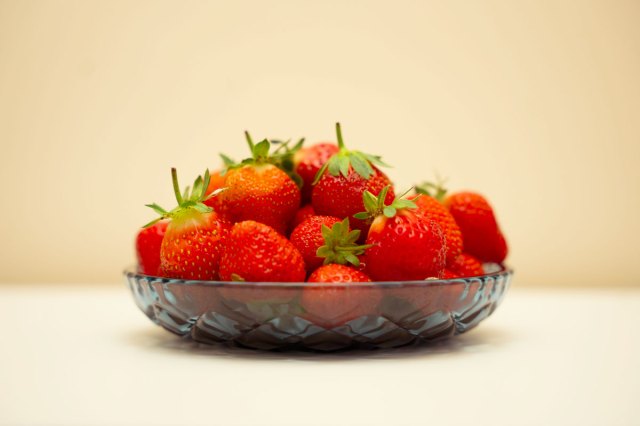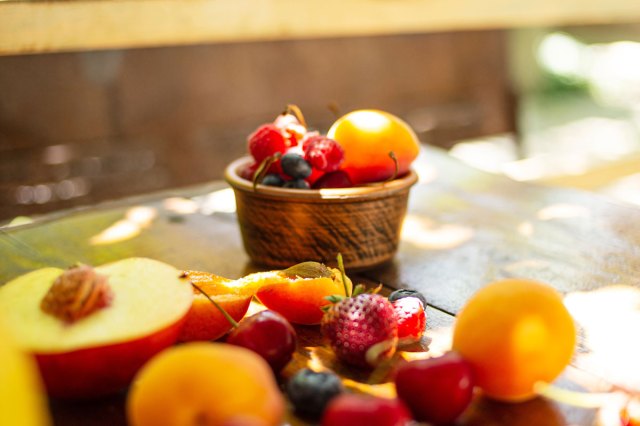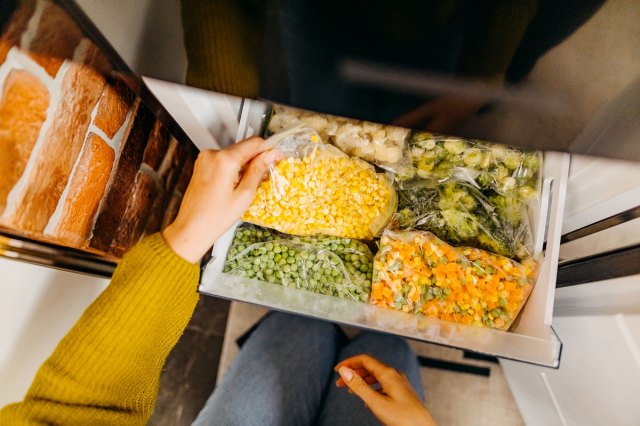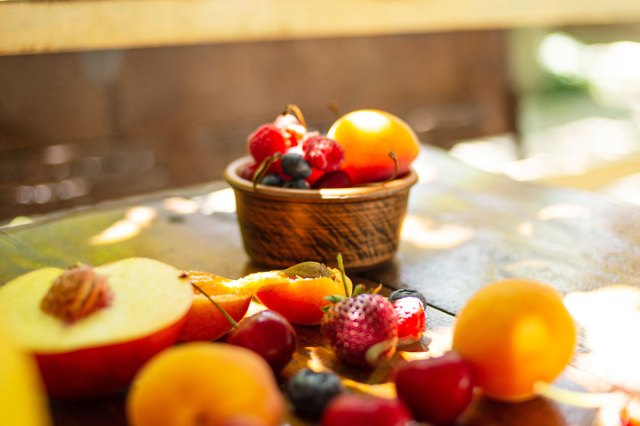There’s nothing worse than realizing your beautiful, recently bought produce has gone soft, squishy, and dull. Not only is it a bummer to miss out on delicious fresh produce, but it also feels like you threw money down the drain. Fruits and vegetables require specific storage methods to maximize their shelf life. Follow these easy tips to keep your wallet — and stomach — satisfied.

Thoroughly Dry Produce
We all know to wash our fruits and vegetables once we’re home from the store, but make sure to dry your produce thoroughly. A little humidity is great for your produce, but being wet is not. More often than not, when produce starts to go south, it’s because it’s accrued too much moisture.

Know Which Products to Store in Water
Some produce, however, thrives in water. Spring onions, asparagus, and stemmed, leafy herbs, such as parsley and cilantro, do best when placed in water, allowing their roots to stay hydrated. Just as you would with fresh flowers, change the water daily so it doesn’t get too pungent or gross.

Wrap Berries and Leafy Greens
It might be tempting to leave your produce in whatever plastic container it comes in, but the holes do more harm than good once it’s in the fridge. After washing your berries and leafy greens, store them with a dry paper towel in a sealable bag or tupperware. This prevents any outside germs or moisture from seeping in and guarantees that any moisture that comes out of your produce has a place to be absorbed.
Reader Favorites

Know What Has Ethylene
Some fruits and veggies emit ethylene gas, such as apples, bananas, and tomatoes. This gas accelerates their ripening and that of other non-ethylene fruits and veggies, such as avocados and bananas, when placed near them. Store these fruits and veggies in a separate part of your kitchen to avoid them ripening others. Alternatively, if you want stone fruit or other stubborn, unripened produce to ripen more quickly, store them overnight with an apple or some potatoes in a bag.

Freeze Excess Produce
We often think of frozen fruits and vegetables as the opposite of “fresh,” but sometimes freezing your fresh produce is the best thing you can do to preserve freshness. Chop and blanch vegetables before thoroughly squeezing and drying, and store them in a sealable bag or sturdy container in your freezer. Hearty produce like zucchini and corn can be thawed and eaten as if fresh and frozen fruit makes great smoothies.
Featured Image Credit: Yana Gorbunova/ Unsplash
More From Our Network
Better Report is part of Optimism, which publishes content that uplifts, informs, and inspires.
















